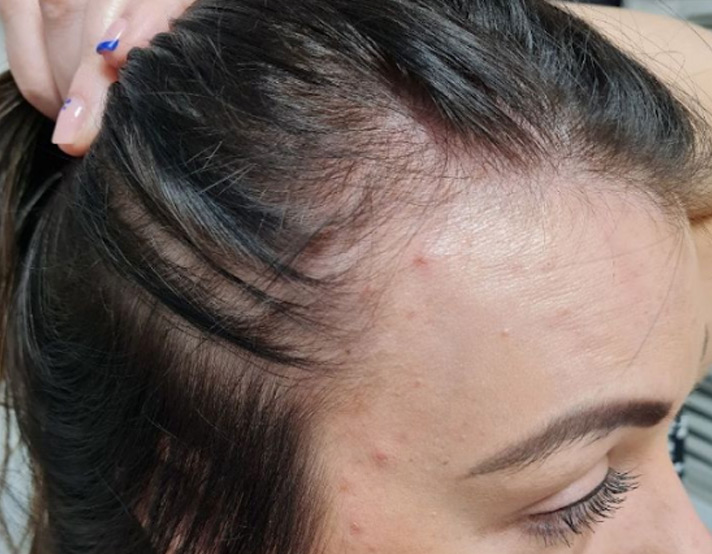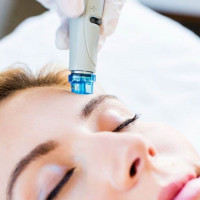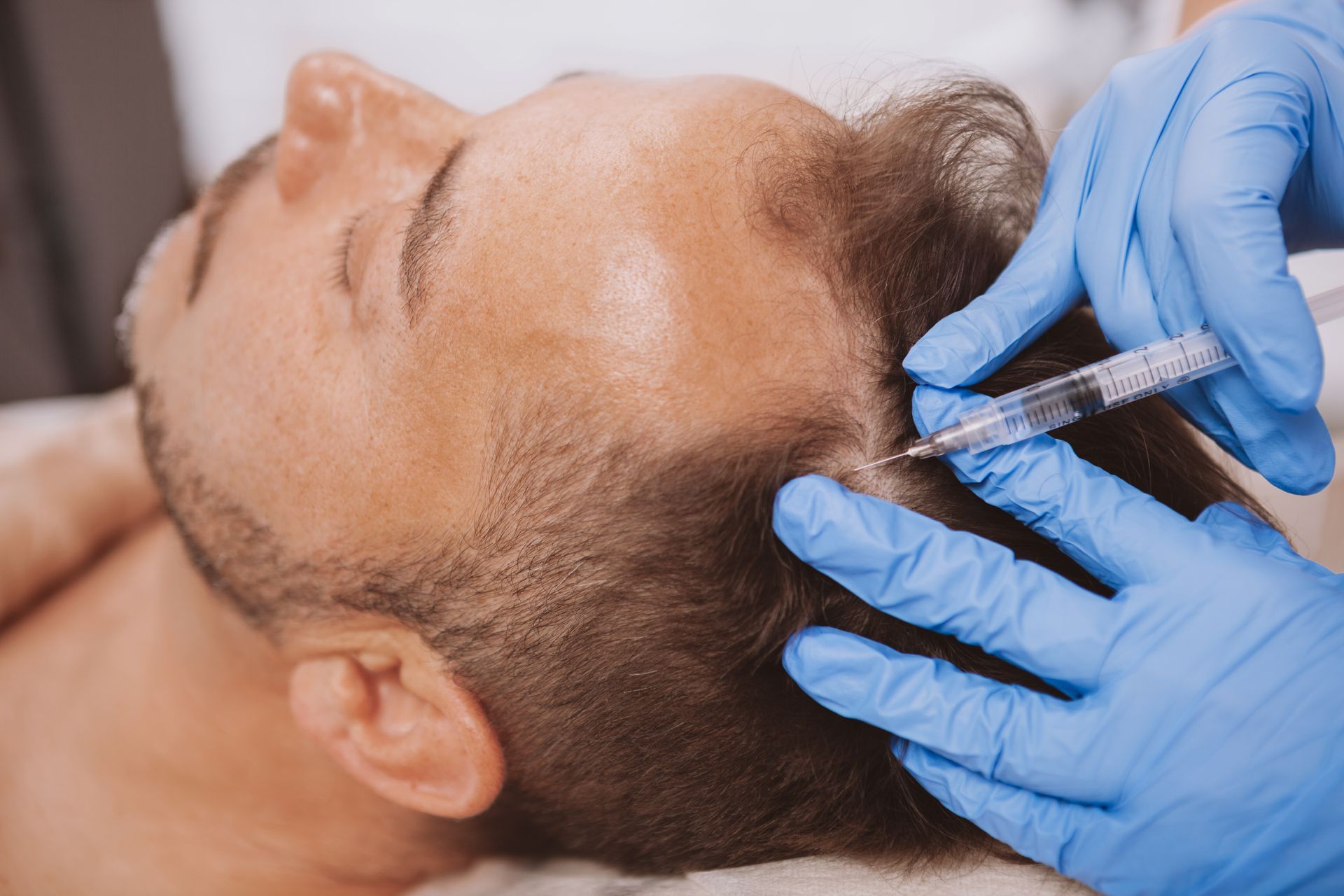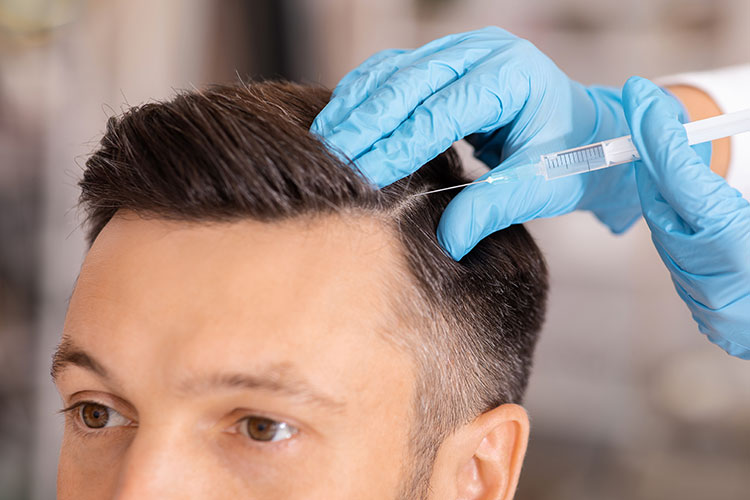What Are the Risks of Getting a Hair Transplant in Dubai?

Dubai has become a prominent hub for medical tourism, particularly in cosmetic procedures like hair transplants. Known for its state-of-the-art medical facilities and highly skilled professionals, the city attracts thousands of patients from across the globe. However, despite its appeal, there are several risks associated with getting a Hair Transplant. Understanding these risks can help you make an informed decision about whether the procedure is right for you.
✍️ Explore before-and-after results from PRP procedures.
Risk of Choosing Unqualified Surgeons
One of the primary risks associated with hair transplants in Dubai is selecting an unqualified or inexperienced surgeon. While Dubai has world-class medical professionals, the market for cosmetic surgery is not as regulated as it should be. Anyone can set up a clinic, and some less reputable establishments may hire surgeons with questionable credentials or limited experience in hair transplant procedures.
Patients are often lured by the lower costs or attractive offers, only to find that their procedure is performed by an underqualified professional. This can lead to botched surgeries, poor results, and complications like scarring or infection.
How to mitigate this risk:
Ensure the surgeon is board-certified in dermatology or plastic surgery.
Look for a surgeon with a proven track record and positive reviews from previous patients.
Ask about their experience specifically with hair transplant procedures, and review before-and-after photos of their previous work.
Infection and Complications from Poor Sterilization
As with any surgical procedure, hair transplants come with the risk of infection. This is especially true if the clinic’s hygiene standards are not up to international standards. Hair transplant procedures involve puncturing the scalp and inserting grafts, which creates a potential entry point for bacteria. If the surgical tools or the operating environment are not adequately sterilized, the risk of infection increases.
Infections can lead to pain, swelling, hair loss, or even more severe complications like sepsis if not treated promptly.
How to mitigate this risk:
Ensure the clinic adheres to proper sterilization protocols.
Ask about the measures taken to ensure patient safety and hygiene.
Follow post-procedure aftercare instructions strictly to reduce the risk of infection.
Unsatisfactory Results and Unrealistic Expectations
While hair transplants generally have high success rates, the results may not always meet patient expectations. Some clinics in Dubai market their services with unrealistic promises of a "perfect" hairline or “full” hair growth. However, the outcome depends on various factors, such as the skill of the surgeon, the quality of the donor hair, and the individual’s scalp condition. If a patient’s expectations are not aligned with the reality of the procedure, they may end up disappointed.
Additionally, if the transplant is not performed properly, the grafts may not take, or the hair growth may be uneven, leading to unnatural or patchy results.
How to mitigate this risk:
Have a detailed consultation with your surgeon to discuss realistic expectations.
Be clear about what you want to achieve and ask the surgeon if your goals are feasible based on your hair condition.
Consider a second opinion from a different surgeon if you feel uncertain about the diagnosis or treatment plan.
Financial Risks and Hidden Costs
Hair Transplant In Dubai can be expensive, with prices varying depending on the clinic, surgeon, and the type of procedure used. While Dubai is known for offering advanced medical services at relatively affordable prices compared to Western countries, there is always a possibility of hidden costs. These can include follow-up treatments, medications, or even revision surgeries if complications arise.
In addition, since medical tourism is a big industry in Dubai, many clinics may not disclose all costs upfront, leaving patients with unexpected bills after the procedure.
How to mitigate this risk:
Request a detailed breakdown of the costs before agreeing to the procedure.
Ask about any additional fees that may arise post-surgery, including follow-up visits, medications, and aftercare treatments.
Compare prices between different clinics to ensure you are getting a fair deal without compromising on quality.
Scarring and Post-Operative Side Effects
Another risk of a hair transplant is scarring, which can occur after both Follicular Unit Extraction (FUE) and Follicular Unit Transplantation (FUT). In FUE, small circular scars are left at the donor site where follicles are extracted. In FUT, a linear scar remains at the donor site. While these scars are usually minimal and fade over time, they can be more noticeable for some individuals, especially if they have short hair.
Other potential post-operative side effects include swelling, numbness, and temporary hair loss in the transplanted area (shock loss).
How to mitigate this risk:
Discuss with your surgeon the type of scar that might result from your procedure and whether it can be hidden by your natural hair.
Follow post-operative care instructions carefully to minimize swelling and prevent complications.
Consider a more advanced technique like FUE if you are concerned about visible scarring.
Unregulated Aftercare Practices
Aftercare is critical to the success of a hair transplant. Some clinics in Dubai may not provide proper aftercare instructions or may not follow up with patients post-procedure, leaving them vulnerable to complications like infections, scarring, or graft rejection. Poor aftercare can also lead to poor results, with transplanted hair failing to grow as expected.
How to mitigate this risk:
Ensure that the clinic provides comprehensive aftercare instructions and follow-up appointments.
Adhere to all aftercare guidelines regarding washing, medication, and activity restrictions.
Contact your surgeon promptly if you notice any unusual symptoms post-surgery.
Cultural and Language Barriers
Dubai is an international city, and while most healthcare professionals speak English, there may still be language or cultural differences that complicate communication between the patient and surgeon. Misunderstandings about the procedure or aftercare can lead to unwanted complications or dissatisfaction with the results.
How to mitigate this risk:
Choose Enfield Royal Clinic In Dubai which employs English-speaking staff and offers consultations in a language you are comfortable with.
Make sure that the surgeon thoroughly explains every aspect of the procedure, and feel free to ask questions until you are completely clear on what will happen.
Conclusion
While Dubai is undoubtedly a leading destination for hair transplants, patients must carefully consider the potential risks involved. Choosing the right surgeon, ensuring proper aftercare, and managing expectations are critical to achieving a successful outcome. By conducting thorough research and preparing for the procedure, you can minimize the risks and enjoy the benefits of a hair transplant that enhances your confidence and appearance.
Note: IndiBlogHub features both user-submitted and editorial content. We do not verify third-party contributions. Read our Disclaimer and Privacy Policyfor details.







